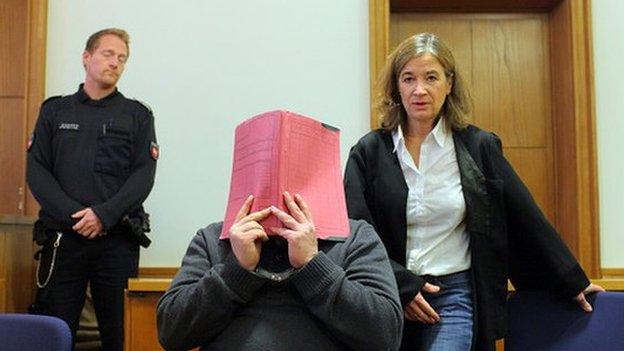Niels Högel: German ex-nurse admits killing 100 patients
- Published
Christian Marbach tells the BBC it is hard to accept his grandfather's murder
An ex-nurse in Germany has admitted at the start of his trial that he murdered 100 patients, making him one of the world's most prolific serial killers.
Detectives say Niels Högel administered fatal doses of medication to the people in his care - causing cardiac arrest - at two hospitals in northern Germany.
His motive, prosecutors say, was to impress colleagues by trying to revive the very patients he had attacked.
Högel, 41, is already serving a life term for six deaths while in his care.
He is now said to have killed 36 patients in Oldenburg and 64 in nearby Delmenhorst between 1999 and 2005.
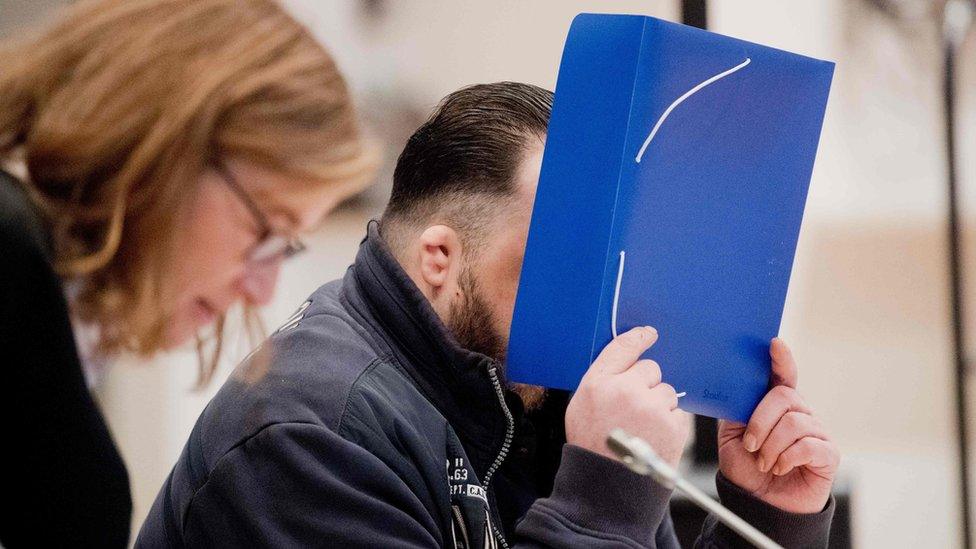
Niels Högel hid his face from the cameras in court on Tuesday
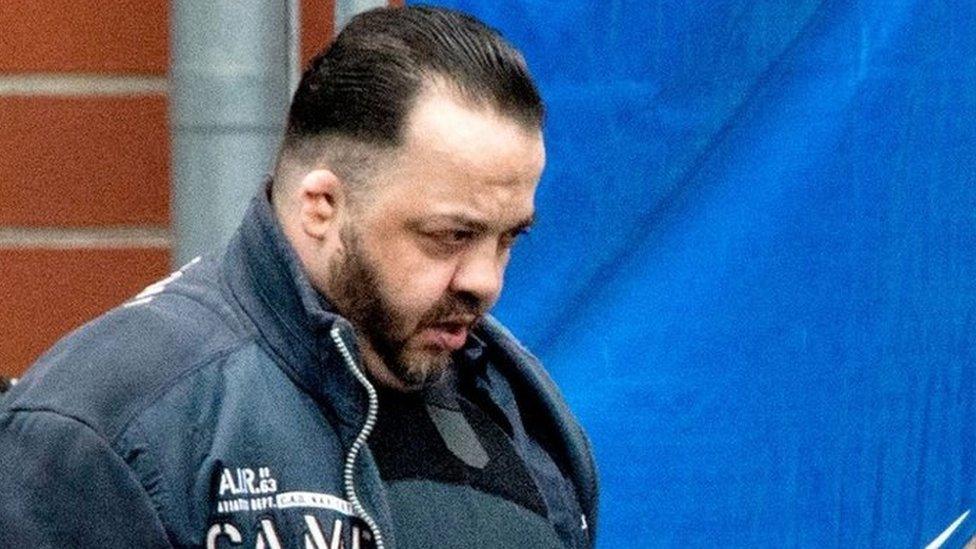
He was later seen being led to a police vehicle
When asked by the judge in the Oldenburg court if the charges against him were true, the 41-year-old confessed to "more or less" all of them.
The current trial, which started with a minute's silence for the victims, is expected to last until May. It follows years of toxicology tests on 130 sets of exhumed remains.

Questions remain for victims' families
By Jenny Hill, BBC News, Berlin
Dozens of relatives of those who died at the hands of Niels Högel were in court to hear his confession.
Many of them are demanding to know how he was able to kill - with apparent impunity - so many people in the confines of two hospitals.
Death rates rose significantly during Högel's time.
Disturbing details have emerged: it's been widely reported that Högel was allowed to continue working for two days after he was caught "red handed" having administered drugs to a patient, during which time he killed another patient.
Many relatives believe health authorities chose to turn a blind eye.
An investigation is under way to determine whether their actions facilitated the murderous ambitions of post-war Germany's most prolific serial killer.

Investigators say he may have killed even more but potential victims have been cremated.
Christian Marbach, a spokesperson for relatives, said it was a scandal the ex-nurse had been allowed to kill with impunity for years without officials intervening.
"We fought for four years for this trial and expect Högel is sentenced for another 100 murders," said Mr Marbach, whose grandfather was killed by Högel.
"I hope he will be found guilty on each count so that the loved ones can finally find some closure," said Petra Klein, who runs a victims' support group.
Relatives of his alleged victims were expected to pack the court but journalists in the room noted many empty seats in reserved rows.
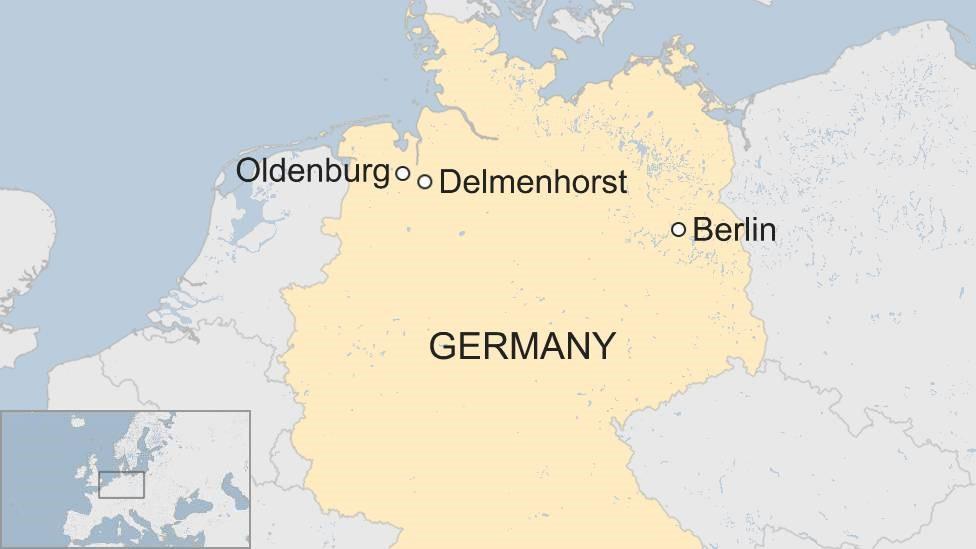
Högel was first caught in 2005 injecting unprescribed medication into a patient in Delmenhorst. In 2008 he was jailed for seven years for attempted murder.
In 2014-15, a second trial found him guilty of two murders and two attempted murders and he was given the maximum sentence.
He said he was "honestly sorry" and hoped families would find peace. He said the decisions to carry out his crimes had been "relatively spontaneous".
However, during the trial he confessed to a psychiatrist that he had killed up to 30 people.
Investigators then widened the investigation, exhuming 130 former patients and looking for evidence of medication that could have triggered cardiac arrest. They also pored over records in the hospitals he worked at.
Records at the Oldenburg hospital showed rates of deaths and resuscitations had more than doubled when Högel was on shift, German media reported.
- Published22 June 2016
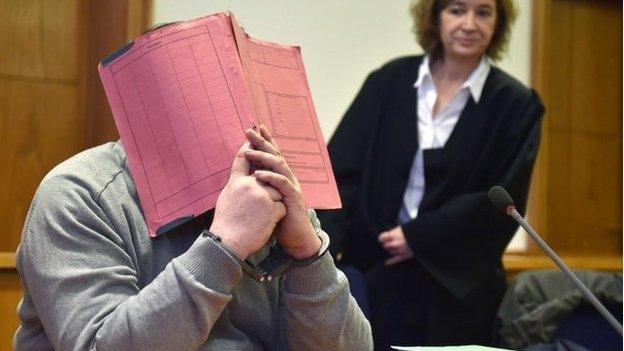
- Published26 February 2015

- Published19 February 2015
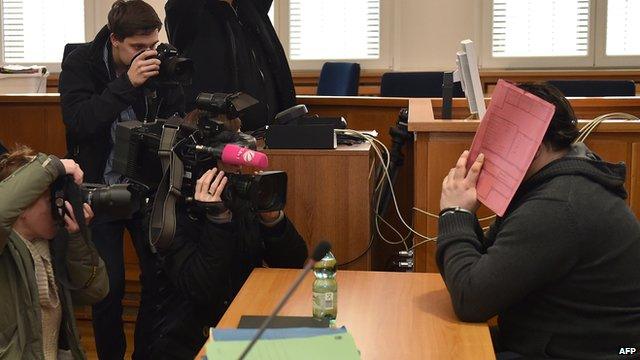
- Published8 January 2015
